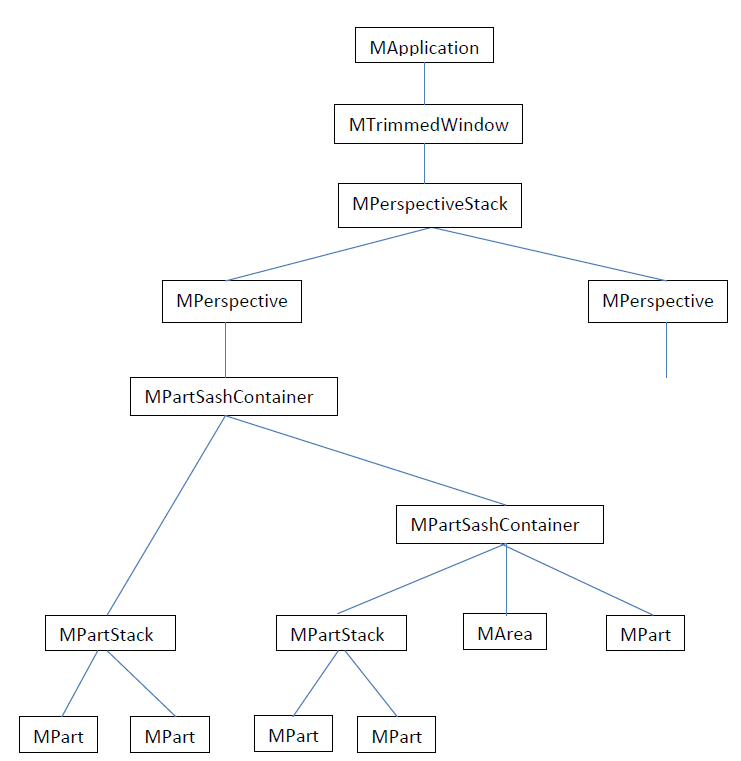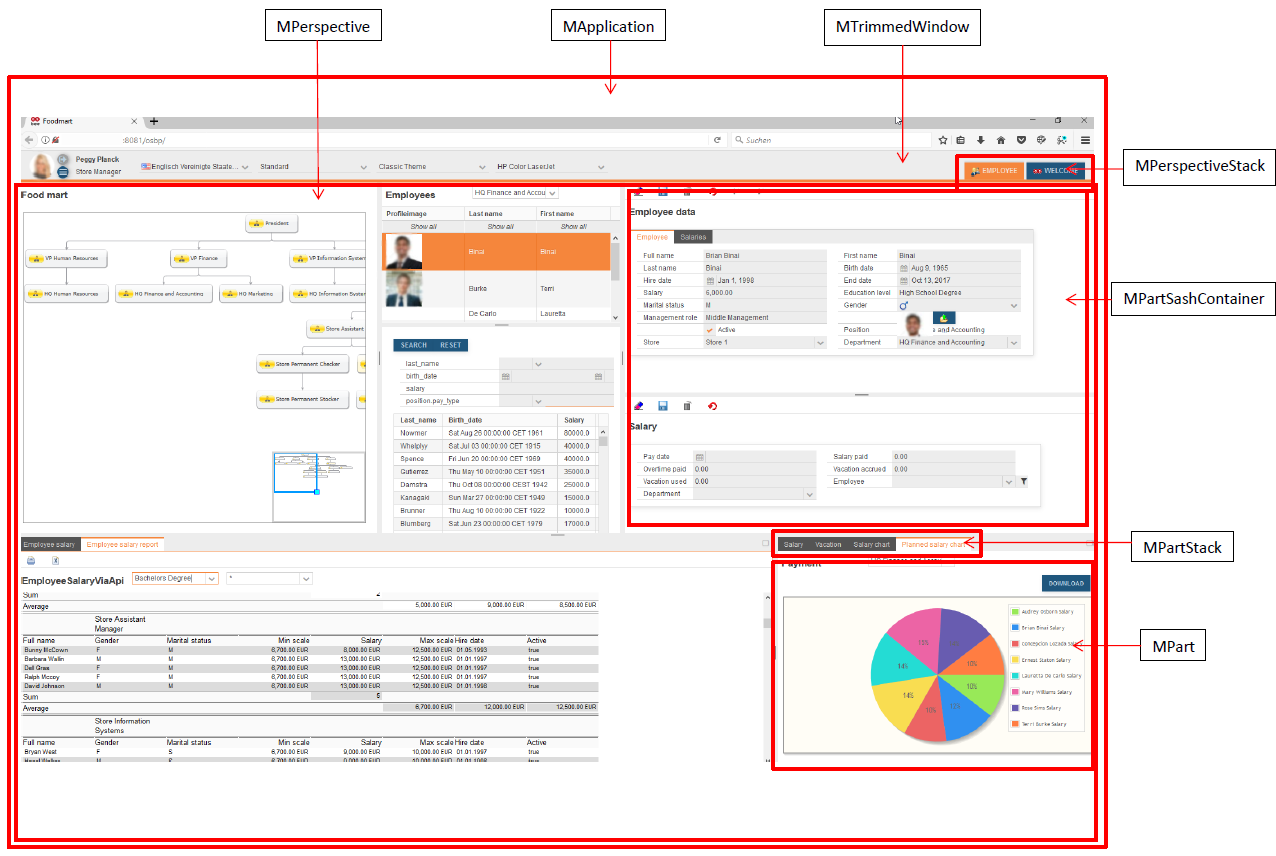Difference between revisions of "Eclipse 4 Application Model"
From OS.bee documentation
(→Purpose) |
|||
| Line 1: | Line 1: | ||
| − | == | + | ==Description== |
OS.bee acts like an Eclipse 4 application, the foundation is therefore the E4 application model. | OS.bee acts like an Eclipse 4 application, the foundation is therefore the E4 application model. | ||
[[File:E4ApplicationModel.png|center|frame|''Figure 1: E4 application model.'']] | [[File:E4ApplicationModel.png|center|frame|''Figure 1: E4 application model.'']] | ||
OS.bee is not a RCP application but renders on browsers as a web application using the [https://vaadin.com/ Vaadin framework]. To achieve this a bridging framework works between the E4 application model and Vaadin. The framework is called [http://semanticsoft.github.io/vaaclipse/ Vaaclipse]. | OS.bee is not a RCP application but renders on browsers as a web application using the [https://vaadin.com/ Vaadin framework]. To achieve this a bridging framework works between the E4 application model and Vaadin. The framework is called [http://semanticsoft.github.io/vaaclipse/ Vaaclipse]. | ||
[[File:E4browser.png|center|frame|''Figure 2: OS.bee E4 application model in a browser.'']] | [[File:E4browser.png|center|frame|''Figure 2: OS.bee E4 application model in a browser.'']] | ||
Revision as of 08:31, 19 October 2017
Description
OS.bee acts like an Eclipse 4 application, the foundation is therefore the E4 application model.
OS.bee is not a RCP application but renders on browsers as a web application using the Vaadin framework. To achieve this a bridging framework works between the E4 application model and Vaadin. The framework is called Vaaclipse.

